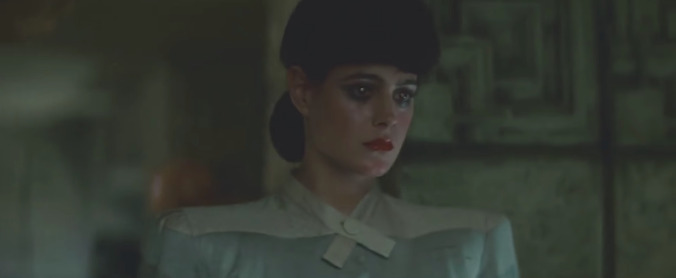
With the highly anticipated sequel hitting theaters this weekend, today is pretty much the last day you can reflect on the themes and philosophical implications of 1982’s Blade Runner before whatever is going to happen in Blade Runner 2049 completely changes what you think. The original Ridley Scott feature is not only memorable for being a collection of impressive, densely packed dystopian visuals, but also for being a movie that asks difficult questions about what it means to be human and whether a being with artificial intelligence has a right to life. The importance of those questions is never more clear then in the film’s ending and the ultimately ambiguous assessment of whether the titular blade runner, Deckard (Harrison Ford), is himself an android.
In the latest video from Looper, we see the evidence for and against Blade Runner’s protagonist being a secret replicant, starting with the onscreen clues offered by the mysteriously omni-present Eduardo Gaff (Edward James Olmos) and ending with the beliefs of the director himself. “You’ve done a man’s job, sir,” Gaff tells Deckard after the film’s climactic final fight, clearly alluding to the fact that Deckard may not be a man at all. This, along with the other more subtle visual cues, like a brief inhuman sheen on Deckard’s eyes, could just be there to make the audience second guess themselves. After all, the film, like the book it’s based on, is built on the idea that there is little difference in terms of value between a human life and an android’s life. What better way to express that than to make our emotion-driven main character a machine?
Ridley Scott has taken a fairly blunt approach to clearing up the film’s ambiguity and has previously stated that Deckard is a Nexus 7: “If you don’t get [that], you’re a moron.” Alternatively, Harrison Ford has said that he resisted the idea of Deckard being a replicant and wanted the character to be portrayed as human for the audience to better connect with. So, after all that, we end up pretty much right back where we started. It’s unclear if Deckard is a human or an android or an android that thinks he’s human, but maybe that just makes the film’s message about the nature of humanity that much stronger. Surely, things will be more clear after seeing Blade Runner 2049, unless the twist of that movie is that we, the audience, are actually the robots.